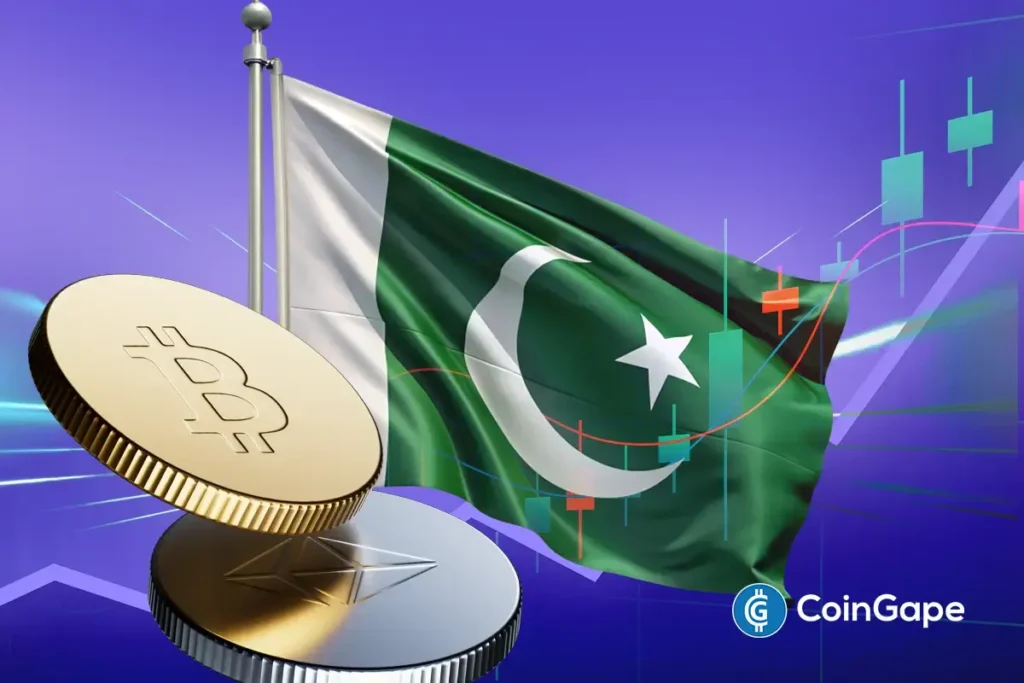Pakistan and El Salvador Forge Unlikely Partnership in Bitcoin Exploration
In a surprising twist in the global cryptocurrency narrative, Pakistan and El Salvador have emerged as unlikely allies, focused on exploring the integration of cryptocurrencies within public sector utilities. At the center of this partnership is Bitcoin (BTC), with both nations eager to increase their holdings of this digital asset. This collaboration marks a significant moment in the history of both countries as they navigate the evolving landscape of cryptocurrency.
A Historic Initiative
Nearly five years ago, El Salvador made headlines by adopting Bitcoin as legal tender, a bold decision that has sparked debate and intrigue worldwide. Recently, Pakistan has joined forces with El Salvador to establish a new economic relationship centered around cryptocurrencies. Bilal Bin Saqib, the Chief Executive of the Pakistan Crypto Council and Minister of State for Crypto and Blockchain, met with El Salvador’s President Nayib Bukele in San Salvador. The goal of this meeting was to explore a knowledge-sharing partnership that could facilitate Pakistan’s understanding of Bitcoin and its potential benefits.
Pakistan’s newfound interest in Bitcoin comes after years of skepticism regarding cryptocurrencies. The Pakistani government has plans to create a Strategic Bitcoin Reserve, aiming to accumulate Bitcoin as a way to solidify its position in the cryptocurrency market. Despite facing challenges from the International Monetary Fund (IMF), which has blocked plans to subsidize electricity for Bitcoin mining, the bilateral relationship with El Salvador signals Pakistan’s determination to learn from its partner’s experience.
El Salvador’s Bold Journey
El Salvador’s journey with Bitcoin has been anything but smooth, especially given the scrutiny from the IMF, which has expressed concerns over countries converting significant portions of their reserves to Bitcoin. Amid these concerns, El Salvador has paused public sector BTC purchases but has sought alternative ways to continue acquiring the cryptocurrency. As of now, the country holds approximately 6,239 BTC, valued at nearly $800 million, with profits surpassing $350 million.
El Salvador has also made strides in mining Bitcoin, leveraging geothermal volcanic energy to mine over 400 BTC in the past three years. This forward-thinking strategy highlights the country’s commitment to sustainable energy and innovation in cryptocurrency mining, setting an example that Pakistan may look to emulate in its own efforts.
Regulatory Framework in Pakistan
While focusing on Bitcoin acquisition, Pakistan is equally dedicated to establishing a robust regulatory framework for the cryptocurrency market. The establishment of the Pakistan Digital Asset Authority (PDAA) is a significant step in this direction, as the agency aims to regulate and oversee Pakistan’s emerging $25 billion cryptocurrency market. This initiative seeks to provide clarity and security for investors while fostering a safe environment for cryptocurrency transactions and innovations.
The partnership with El Salvador could serve as a guide for Pakistan as it formulates policies and regulations surrounding cryptocurrencies. By learning from El Salvador’s experiences, Pakistan can develop its own strategic framework, aiming to encourage responsible adoption of digital currencies while mitigating potential risks.
Overcoming Challenges Together
As both nations embark on this journey, they face various challenges, including regulatory hurdles and skepticism from traditional financial institutions. The IMF’s critical stance on countries like El Salvador integrating Bitcoin into their economic frameworks poses a dilemma for Pakistan as it seeks to follow a similar path. However, this collaborative effort could help both countries navigate these complexities.
By sharing knowledge, strategies, and regulatory best practices, Pakistan and El Salvador can strengthen their positions in the cryptocurrency market, ultimately contributing to the global conversation surrounding Bitcoin and digital currencies. This partnership symbolizes a step towards embracing innovation in finance, despite the opposition they may face from established economic entities.
A New Era for Cryptocurrency Adoption
The collaboration between Pakistan and El Salvador signifies a broader trend of nations exploring cryptocurrencies as viable options for economic resilience and growth. As Bitcoin increasingly integrates into mainstream finance, partnerships like this could pave the way for other countries to consider similar initiatives. The shared experiences and strategies of Pakistan and El Salvador may inspire a new era of cryptocurrency adoption, fueled by lessons learned from both successes and failures.
In conclusion, the partnership between Pakistan and El Salvador represents a groundbreaking development in the world of cryptocurrency. As both countries continue to navigate their unique challenges and opportunities, their collaborative efforts may set a precedent for other nations looking to tap into the potential of digital assets. By fostering innovation, regulatory clarity, and strategic partnerships, Pakistan and El Salvador are stepping boldly into the future of finance.


